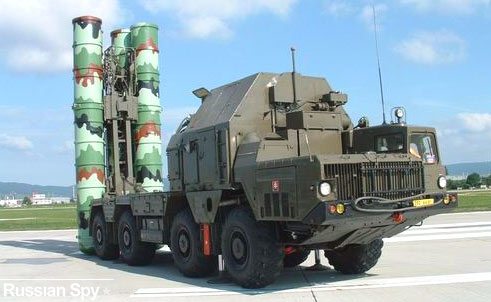Russian President Vladimir Putin meets Iran’s new president for the first time this week, reportedly armed with an offer to supply missile systems and build a second nuclear power reactor that is likely to gladden Tehran and trouble the United States.
President Hassan Rowhani is set to meet Putin on the sidelines of a summit of the Shanghai Cooperation Organization held in Kyrgyzstan on Friday, in the newly-elected centrist cleric’s first meeting with a major world leader.
The Kommersant daily reported Wednesday that Putin would offer to supply Iran S-300 air defence missile systems as well as build a second reactor at the Bushehr nuclear plant.
The S-300 offer would be a particularly contentious development given it would essentially revive a contract for similar missile systems that Russia cancelled in 2010 after heavy Israeli and US pressure.
Putin’s spokesman Dmitry Peskov told Kommersant that Putin and Rowhani were expected to discuss “working together in the nuclear energy sphere” and “questions of military technical cooperation” at the summit in Bishkek.
However, Peskov denied Wednesday evening that Putin had tasked officials with preparing the new arms agreement.
“No,” Russian news agencies quoted Peskov as saying when asked whether Putin ordered to put together such a deal.
Putin’s meeting with the leader of Moscow’s long-standing regional ally comes shortly after he hosted Western powers for a G20 summit focused on Syria in Saint Petersburg last week.
Putin will make significant concessions to Iran by offering to supply Tehran with five S-300 ground-to-air missile systems, Kommersant reported earlier Wednesday, quoting a source close to the Kremlin.
Putin would offer to supply Tehran with a modified export version of the S-300 systems called S-300VM Antey-2500, the source said.
The source also said Russia would offer to build a second reactor for the Bushehr nuclear plant, Iran’s only functioning nuclear power station whose construction was completed by Russia, as a political gesture.
Putin took the decisions on September 5, the source said.
Russia in 2007 signed a contract to deliver five of the advanced S-300 ground-to-air weapons systems — which can take out aircraft or guided missiles — to Iran at a cost of $800 million.
In 2010, then president Dmitry Medvedev cancelled the contract after coming under strong US and Israeli pressure not to go ahead with the sale of the weapons system, drawing vehement protests from Tehran.
Kommersant cited a source as saying that Russia’s offer would depend on Iran’s withdrawing a $4-billion lawsuit that it has lodged at an international court in Geneva against Russia’s arms export agency.
Russia could increase supplies of arms to Iran if Washington decides on military intervention in Syria, the head of the lower house’s committee on international relations, Alexei Pushkov, told parliament on Wednesday.
“If the ‘party of war’ prevails in the United States… then I consider it absolutely justified to suggest considering more serious measures by Russia, including broadening of supplies of defensive weapons to Iran,” Pushkov was quoted as saying by Interfax.
Iran is Syrian President Bashar al-Assad’s main regional ally and has warned Western powers against intervention in the conflict.
Russia has opposed international military intervention against Assad and is negotiating with Damascus on a plan for it to hand over chemical weapons in order to avoid US strikes.
An arms industry source told Interfax on Wednesday that supplies of Antey-2500 S-300s to Iran “could not be ruled out in the future, but so far no pre-contractual work is being carried out by Russian exporters”.
Kommersant also cited the source close to the Kremlin as saying that Russia was ready to build a second reactor for Bushehr power station in a deal that was not “particularly profitable from an economic point of view, but is rather political”.
Moscow has cooperated with Iran on nuclear power generation despite international opposition to a program that Western powers and Israel believe is being used as a smokescreen for building a nuclear bomb, while Iran insists it is peaceful.
Russia had urged the West to soften sanctions against Iran after the election of Rowhani, a centrist cleric, in June, expressing hopes for a major breakthrough in the nuclear standoff. Rowhani has pledged greater transparency in talks.










